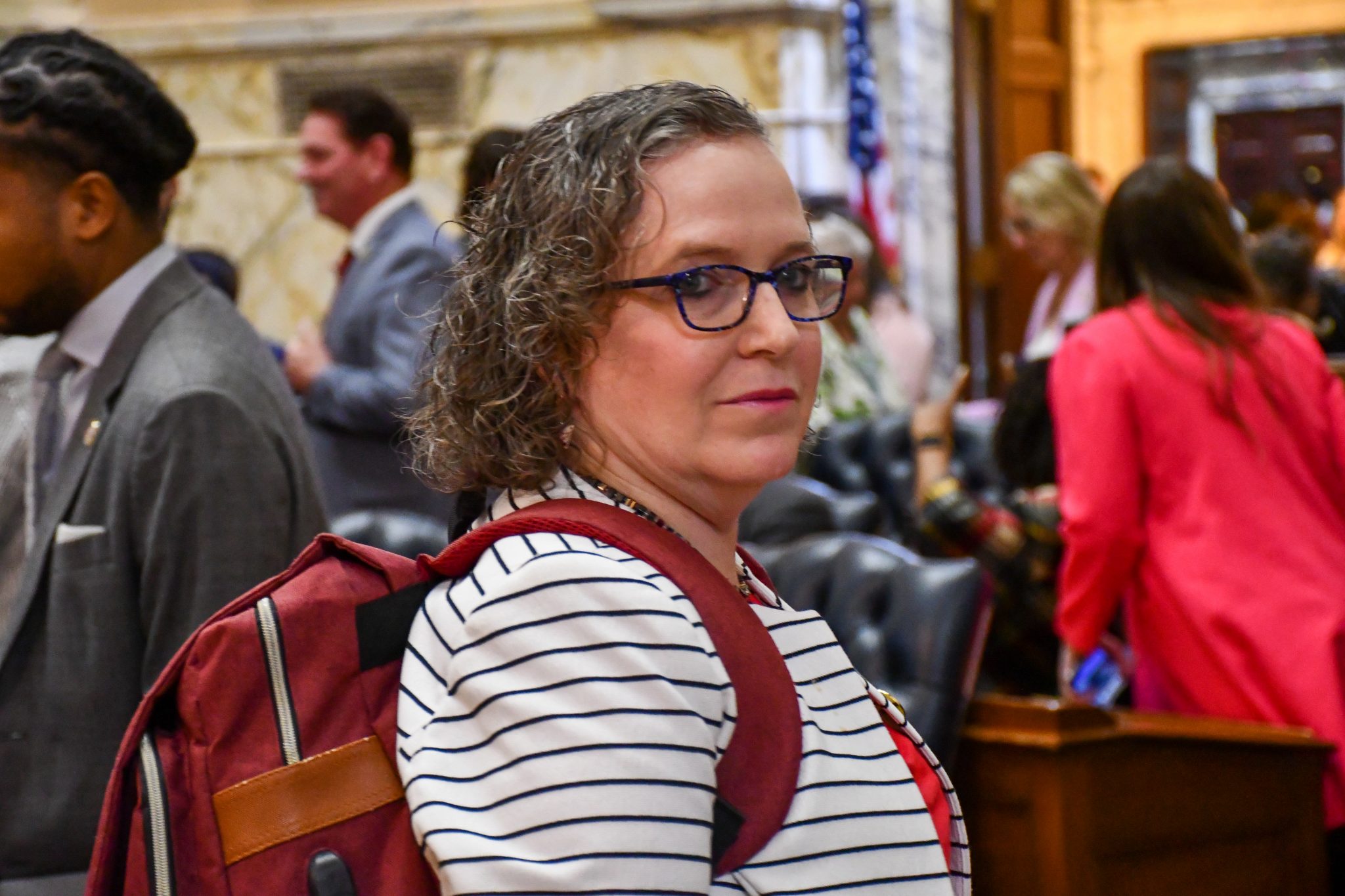After Alexa Rodriguez immigrated to the United States from El Salvador, she learned about the barriers immigrants face when seeking gender-affirming care.
The director of Trans-Latinx DMV, Rodriguez took her advocacy to the Maryland legislature this year to help pass a measure expanding gender-affirming care in the state for people under Maryland Medicaid.
It looks like her work has paid off.
The state legislature passed the Trans Health Equity Act this session, which would require Maryland Medicaid to expand its coverage of gender-affirming treatments if Gov. Wes Moore signs it into law, as is widely expected. It’s a step that will only directly help some Marylanders, but one that advocates say is necessary, especially as Republicans take aim at gender-affirming care nationwide.
“Even that it’s a small win … it will change many people’s lives,” Rodriguez said. “People will have more coverage, but most important for me is that people will not be able to reject us for who we are.”
Currently, Maryland Medicaid only covers mental health services for gender dysphoria, gender reassignment surgery and hormone replacement therapy. Under the bill, the program would also cover hair alterations, voice alterations and therapy, laser treatment for scars from gender-affirming treatment, fertility preservation procedures and more treatments to align individuals’ physical appearances with their gender identity. Private insurances in Maryland already commonly cover these procedures.
An analysis from the state’s health department found about 100 people in Maryland received gender-affirming treatment through Medicaid last year. The department estimated this number will increase by around 25 people per year.
Del. Anne Kaiser (D-Montgomery) was the bill’s lead sponsor and said it’s the state’s responsibility to ensure equity in all types of health care. The bill will only impact a small number of people, she noted, but will send a big message.
“Ultimately it sends a message that we in Maryland … support our trans community,” she said.
In her testimony to the Maryland General Assembly, Rodriguez, who is also a provider of gender-affirming care, said the bill will enhance the safety of transgender people.
[Maryland lawmakers passed hundreds of bills this year. Here are the highlights.]
“As a provider I see a lot of people like me — people living with HIV, trans folks who are immigrants and many of them undocumented — struggling to access [gender-affirming care] that is medically necessary and ultimately life-saving,” her testimony reads.
The bill resulted from conversations in the transgender community about barriers of access to care, according to Lee Blinder, the executive director of Trans Maryland.
Blinder formed Trans Maryland after struggling to access gender-affirming care and resources and meeting other Marylanders with similar issues.
“There was a huge gap in what folks could access just based on income, and that’s always been a huge barrier for our community,” they said.
Kaiser also sponsored the bill during the 2022 legislative session, where the bill stalled in the final days of the legislative session. Last year, Kaiser said, the pandemic led to fewer face-to-face meetings with advocates. More meetings this year allowed advocates to clear up misunderstandings about the bill, Kaiser said.
The Trans Rights Advocacy Coalition, a trans-led group dedicated to improving the wellbeing of transgender Marylanders, helped lead the advocacy for the bill.
Margo Quinlan, a leader with the coalition, said transgender Marylanders have spent time this legislative session humanizing themselves to lawmakers and educating them about how gender-affirming health care saves lives and benefits the transgender community.
Concern that former Gov. Larry Hogan would veto the bill was another reason it didn’t pass last legislative session, Quinlan said.
“With Gov. Moore in the governor’s mansion, it just really feels like now a lot of pieces are in place for us to start moving the needle for trans people,” Quinlan said.
[Maryland legislature finalizes framework for cannabis legalization]
Moore has already pledged his support for the Trans Health Equity Act and said he will sign the legislation into law. The bill will take effect Jan. 1, 2024.
On March 31, Moore became the first governor in Maryland history to recognize International Transgender Day of Visibility, his office said.
This progress for the LGBTQ+ community in Maryland comes as state legislatures across the country are introducing and passing bills to restrict gender-affirming care.
These bills are distressing to the transgender community, and the passage of the Trans Health Equity Act marked a needed win, Quinlan said.
“We need some more and more beacons of hope,” Quinlan said.
Even after the passage of this bill, barriers to gender-affirming care still exist in Maryland, Rodriguez said.
Language differences can make it difficult for immigrants to receive the care they need, and undocumented immigrants who don’t have access to insurance may be unable to afford gender-affirming care.
“[People] may not have an immigration status, but they pay taxes,” Rodriguez said. “They deserve to be supported.”



